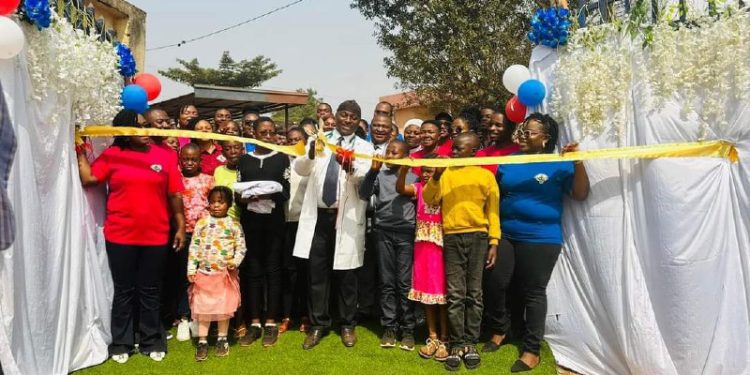19-year-old Amina, who was an aspiring engineer, became a victim of substance misuse in 2017. Now, she roams Old Town, a neighbourhood in Bamenda, North West Region of Cameroon. Amina embodies one of the major concerns – giving authorities sleepless nights – which resulted from drug abuse.
In this part of Bamenda, like elsewhere in the region grappling with a deepening armed conflict, such cases abound. It has now prompted the Bamenda Regional Hospital to dedicate a unit aimed at addressing these pressing concerns. The unit is called the Adolescent Wellness Center – which is aimed at tackling deviant behaviours.
While sharing the agony of witnessing her daughter’s downward spiral, Fadimatou, Amina’s mother, also highlighted her challenges. “I have tried all I can to make my daughter stop taking hard drugs, but all my efforts are in vain, as she has upped her game in substance abuse,” Fadimatou lamented.
Hope amid despair
Many people have described the wellness center as a beacon of hope. Dr. Denis Nsame, the director of the Bamenda Regional Hospital, emphasised the significance of addressing challenges faced during the formative years. “Adolescence is a neglected stage of growth; this center is here to address the challenges that they face,” Dr. Nsame said.
Patients and parents have underscored the positive impact of the hospital’s comprehensive approach. Manka is one of the patients. “I have learned that my body is mine, and I should not let anyone misuse it because I feel changes, which are normal for every adolescent growing up.”
Amid Anglophone Crisis
More and more young people have resorted to substance abuse since the crisis in the country’s English-speaking regions started in 2016. After thousands of kids, both boys and girls, were stopped from going to school due to a boycott policy imposed by Separatists who have been fighting for an independent state called Ambazonia, crime, drug abuse, and teenage pregnancies have seen a remarkable spike.
Efforts to address the conflict have been fruitless. “The rate of drug abuse now has been alarming,” noted the general hospital director, who was referring to the Anglophone Crisis.
According to experts, the opening of the Wellness Center is “timely.” They say it “provides an array of services, including medical care, mental health information, education, and counselling; substance abuse support; sexual and reproductive health; and the prevention of non-communicable diseases.”
The hospital’s leadership envisions a holistic approach that treats immediate issues and empowers adolescents to make informed choices for a healthier future.
Parents like Fadimatou commend the hospital’s proactive stance, recognising the need for collaborative efforts to address complex social issues affecting the region’s youth. They hope that investing in the well-being of adolescents today will break the cycle of deviant behaviours and contribute to the long-term stability and prosperity of the North West Region.
As the hospital’s new unit gains momentum and is inaugurated on January 27th, it serves as a testament to the resilience and determination of the community to safeguard its youth, even in challenging circumstances. The success of this initiative holds the potential to impact not only the lives of individual adolescents but also to contribute to building a stronger and more resilient society for generations to come.



